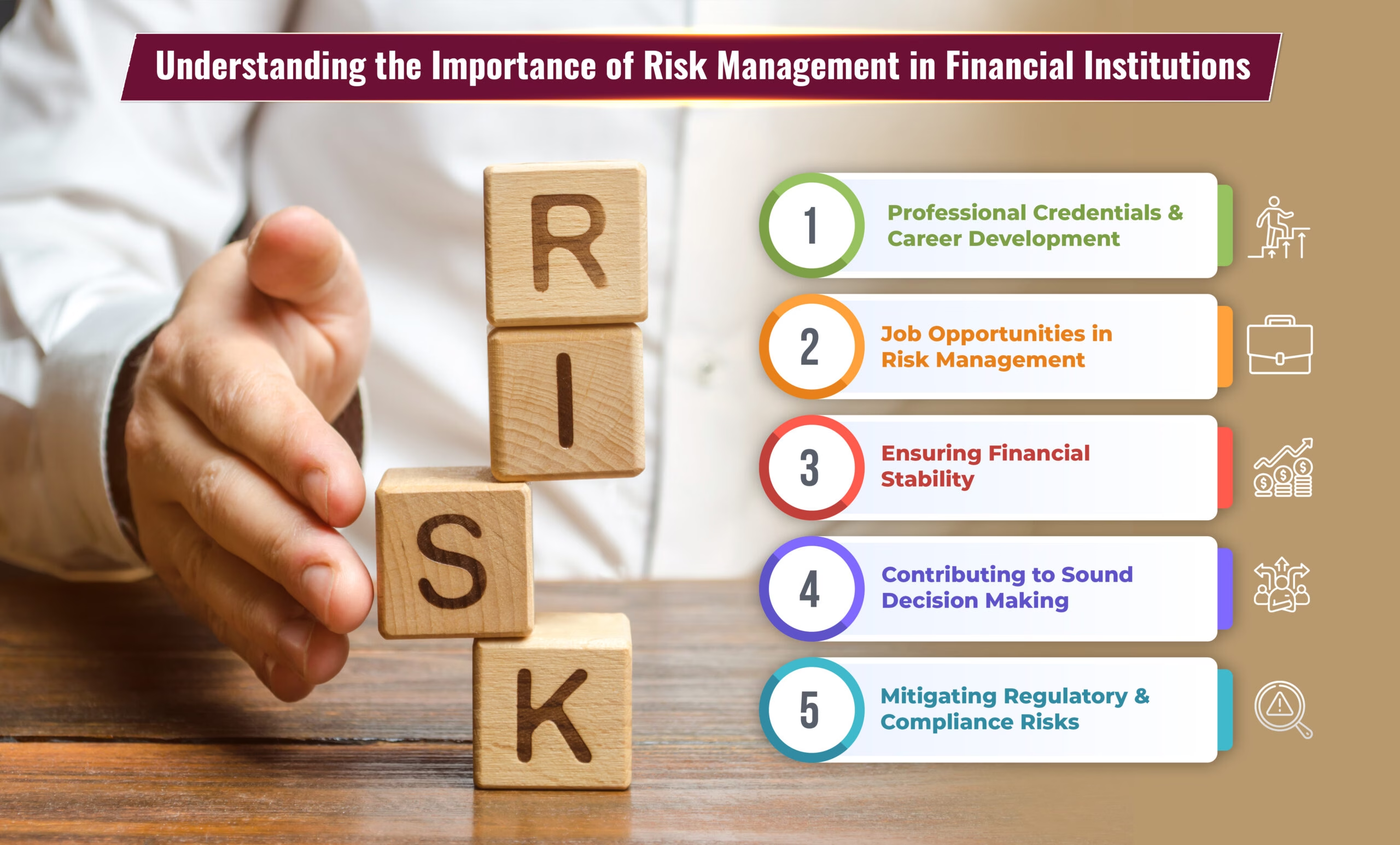In today’s environment of rapid change and volatility in financial markets; risk assessment and regulatory compliance are the backbone of maintaining financial stability. Professionals in finance are increasingly looking for ways to improve their proficiency and show expertise in all these emerging areas. Financial Risk Management (FRM) is one of those certifications that can be used as a tool for gaining an edge over others in this fast-paced world.
In this blog post, we shall talk about FRM certification as it helps in advancing one’s career in finance, focusing on areas of risk assessment, regulatory compliance, and the risk related to market volatility. The blog will present benefits, requirements, and some step-by-step guides towards attaining this great qualification.
Understanding FRM Certification
The Financial Risk Manager (FRM) certification, awarded by the Global Association of Risk Professionals (GARP), is a globally recognised credential that signifies expertise in assessing, managing, and mitigating financial risks. The comprehensive FRM curriculum covers a wide range of topics, including risk assessment, regulatory compliance, market volatility, risk appetite, and more. By earning the FRM certification, finance professionals demonstrate their proficiency in navigating the complex world of risk management.
Benefits of FRM Certification:
Improved Career Opportunities:
An FRM certification opens doors to many career opportunities in finance. The certificate is highly regarded by employers all over the world since it shows that you have taken your professional development seriously and are competent at risk assessment, regulatory compliance, and management of market volatility. As an FRM-certified candidate, you become an attractive candidate for roles like risk manager, risk analyst, compliance officer, portfolio manager, and other similar roles.
Industry Recognition:
FRM certification is well-known within the finance industry. It becomes a testament to your competency and knowledge, thereby offering instant credibility among peers, colleagues, and clients. Employers usually look for certified professionals because they know that certified professionals will bring added value and special skills.
Competitive Advantage:
In a highly competitive job market, the FRM certification will give you the edge to outdo other competitors. It exemplifies commitment to professional growth and separates you from uncredentialed professionals. Employers seek technical expertise that will help the professionals appropriately negotiate intricate challenges they face in risk management, including regulatory compliance and managing volatile markets.
Requirements to Obtain FRM Certification:
To earn the FRM certification, candidates must fulfill certain requirements set by GARP:
Educational Qualifications:
Candidates must have a bachelor’s degree or an equivalent international degree recognised by GARP. The FRM certification is open to professionals from diverse educational backgrounds, allowing individuals with varying expertise to pursue the certification.
Work Experience:
The candidate should have a minimum of two years of full-time professional work experience in the field of financial risk management or any related field. The experience must be verifiable and can be acquired before or after passing the FRM exams.
Passing the Exams:
The exam is divided into two sections, Part I and Part II. They both evaluate whether you truly understand risk assessment, regulatory compliance, market volatility, and risk appetite, among other concepts. Passing Part I is a prerequisite for a candidate to sit for Part II, of which you need to take the computer-based exam within the given six-month period.
If you wish to get FRM Certified, visit our website for Financial Risk Manager (FRM) Course information online at Zell Education.
Steps to Achieve FRM Certification:
Enroll in an FRM Exam Prep Course:
Registering for an FRM exam prep course is mandatory. Structured material is available to you for preparation and practice purposes. If you enroll in a coaching class, they will offer you guided assistance from the most experienced instructors who will fully prepare you for your exam sessions. Key areas covered will be risk assessment, regulatory compliance, market volatility, and the overall risk appetite.
Study Diligently
Schedule dedicated time to study the extensive FRM curriculum. Break the material into workable chunks, review important concepts about risk assessment, regulatory compliance, market volatility, and risk appetite, and practice solving exam-style questions. The more regular and consistent your study sessions are, the more solid your retention of risk management knowledge will be.
Practice with Sample Exams:
Understand the exam format and practice with a few sample exams to improve your time management. GARP offers official practice exams that are designed to reflect the actual testing environment. Hence, you can prepare better and understand where you have to work harder.
Get Registered and Take the Exams.
Register with GARP for the FRM examination once you feel prepared. Book a convenient date and centre for the FRM examinations. On the day of the examination, arrive early, ensure you have the necessary documents, and then sit calmly and focus on the FRM exam.
Conclusion
An FRM certification can greatly boost your career in finance. Specialising in risk assessment, regulatory compliance, and managing market volatility while staying within the boundaries of your risk appetite positions you as a knowledgeable and skilled risk management professional. The FRM designation opens the door for diverse job opportunities, increases industry recognition, and offers an edge over others in the field of finance. Reach out to Zell Education if you have any doubts about the FRM certification.
FAQs on the Scope of FRM Certification:
What is the average FRM salary?
The average FRM salary in India ranges up to INR 8 lakh per annum with a higher package for experienced professionals across the globe.
Is FRM a good career option?
Yes, FRM has emerged as an excellent career option because of its global acceptability and increasing demand in the field of financial risk management.
Can I get a job after FRM?
Yes, FRM-certified professionals are in high demand these days in risk management, credit analysis, and investment banking.
Is FRM valued in India?
Yes, FRM is valuable in India. FRM is extensively valued in India, particularly in financial hubs like Mumbai and Bangalore, and recognised by leading financial institutions.

